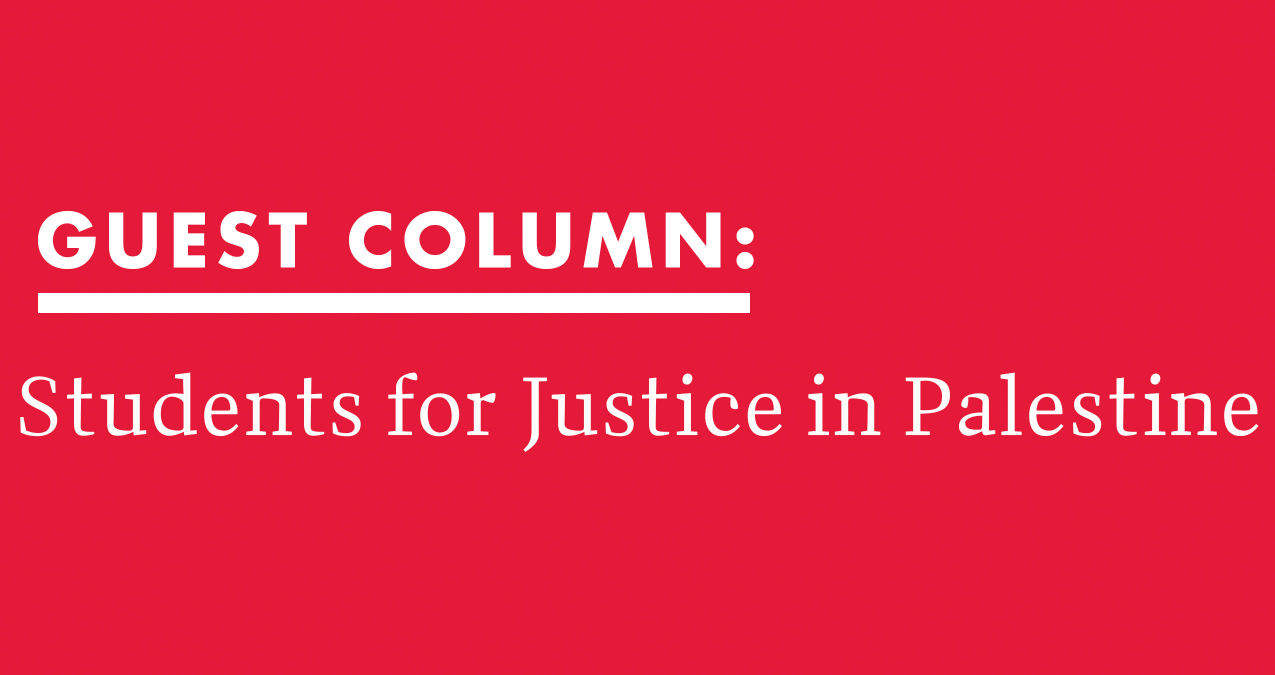
Students for Justice in Palestine
On Oct. 18, the Holy Land Peace Fellowship Foundation hosted a Day of Prayers for Peace in the Middle East at the Memorial chapel. The Day of Prayers was an event open to all people, whether Jewish, Christian or Muslim. The Day of Prayers was an event for peace, for respect and for humanity, an event motivated by the heartfelt yearning for an end to violence in the Middle East, specifically in Jerusalem.
Jerusalem — an enduring, tangible, architectural counterpart to the sacred scriptures that have guided humans for thousands of years — is a historically inclusive nexus of diverse peoples who came together in the construction of something greater than themselves. As a holy city to three religions of peace, Jerusalem was — and could be — a testament to the visions of the prophets of Judaism, Christianity and Islam, who, in their own time and place offered their peoples a vision of what is possible: love and collaboration.
The spirit of Jerusalem is experienced by humans all over the world — even here, continents and oceans apart, at our interfaith chapel at the University of Maryland. What we want, and what humans want everywhere, is peace. We long for the day when our potential may be celebrated, when our rights may be safeguarded, when our friends and families and children may feel free to open their hearts to the sunshine and the sea. This is what we want.
But how can there be peace for a people — the Palestinians — who are deprived of their rights and subjected to oppression? How can peace be demanded from those whose homes are demolished by soldiers in front of their own eyes? How can peace be asked of people who are denied their right to move freely to work and school? The Palestinians have lost their homes to Israeli expansion — and then their olive trees, and then their water, and now even their right to pray at the al-Aqsa mosque. Israeli settlers, in violation of the international laws codified by the United Nations and the International Court of Justice, have taken Palestinian land and erected a segregation wall around themselves. Lynch mobs roam Jerusalem chanting “Death to Arabs,” and Palestinians are afraid to walk in the streets. The violence enveloping Jerusalem is the expression of a heavy anger that smolders in the heat of a protracted and unjust occupation.
The whole world asks for peace, which might still be possible. But how can there be peace in a place devastated by oppression? How can peace be asked of a person who has known nothing but cruelty and coercion from the oppressor? The whole world asks for peace, and we, Students for Justice in Palestine, echo this cry. But while we ask for peace, we also call for the conditions that could make peace possible. We call for the restoration of land, rights and self-determination to the Palestinian people. We call for the end of the occupation and the dismantling of the segregation wall. We call for the right of return for the 5 million Palestinian refugees denied access to their homes. We call for full political equality for the Palestinian citizens of Israel. We call for an extension of what we all hold dear — our rights, our lives and our freedoms — to the Palestinian people immediately.



